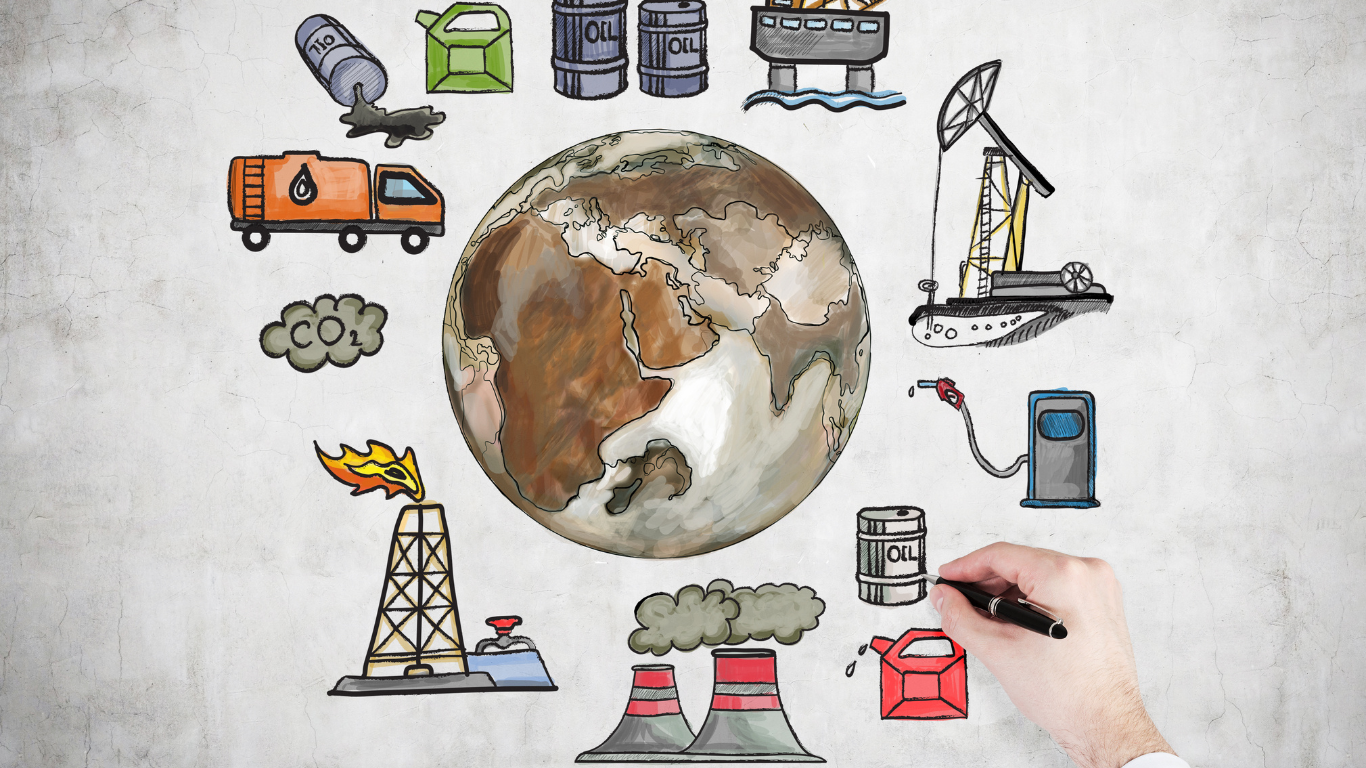
Coping with Climate Anxiety: Strategies for Finding Peace Amidst Environmental Concerns
In today's world,
it's impossible to ignore the looming specter of climate change. With every
passing year, the evidence of environmental degradation grows more apparent,
and for many, this reality sparks a profound sense of unease known as climate
anxiety. Also referred to as eco-anxiety or climate change anxiety, this
emotional response to ecological concerns is becoming increasingly prevalent in
our society. As individuals grapple with the enormity of our environmental
challenges, it's essential to address how to manage and cope with these
feelings constructively.
Understanding Climate Anxiety
Climate anxiety
encompasses a range of emotions, including fear, grief, anger, and
helplessness, stemming from the perceived threat posed by climate change. It
manifests in various ways, from persistent worry about the future to
overwhelming distress triggered by environmental events such as natural
disasters or species extinction. This anxiety can be exacerbated by the
constant stream of alarming news headlines and dire predictions from
scientists, creating a sense of doom and hopelessness.
Recognizing the Impact
The impact of climate
anxiety extends beyond individual well-being, affecting relationships, work
productivity, and overall quality of life. It can lead to feelings of
isolation, as those experiencing climate anxiety may struggle to find others
who share their concerns or understand the severity of the issue. Additionally,
the sense of existential dread associated with climate change can contribute to
mental health conditions such as depression and PTSD, further complicating the
situation.
Coping Strategies
While it's natural to
feel overwhelmed by the enormity of climate change, there are several
strategies individuals can employ to manage their anxiety and foster a sense of
resilience:
- Stay Informed but Set Limits: Keeping abreast of environmental news is essential, but consuming too much negative information can fuel anxiety. Set boundaries on media consumption and focus on reputable sources that offer solutions and hope alongside the challenges.
- Take Action: Channeling anxiety into meaningful action can empower individuals to make a positive difference. Whether it's participating in local conservation efforts, advocating for policy change, or adopting sustainable lifestyle habits, every small step counts towards collective progress.
- Practice Self-Care: Engage in activities that promote relaxation and well-being, such as meditation, exercise, spending time in nature, or connecting with loved ones. Prioritize self-care routines to replenish mental and emotional reserves depleted by climate anxiety.
- Find Community Support: Seek out like-minded individuals or join climate-focused organizations where you can share experiences, exchange ideas, and find solidarity in collective action. Building a support network can provide validation and encouragement on the journey to managing climate anxiety.
- Focus on Resilience:
Cultivate a mindset of resilience by reframing challenges as opportunities for
growth and adaptation. Instead of succumbing to despair, envision a future
where communities thrive in harmony with nature, and work towards that vision with
determination and optimism.
Seeking Professional Help
If climate anxiety
begins to significantly impact daily functioning or mental health, don't
hesitate to seek support from a qualified mental health professional.
Therapists trained in eco-psychology or environmental counseling can offer
specialized guidance and coping strategies tailored to address climate-related
distress
Conclusion
Climate anxiety is a
natural response to the existential threat of climate change, but it's crucial
not to let fear paralyze us into inaction. By acknowledging our emotions,
seeking support, and taking positive steps toward environmental stewardship, we
can transform anxiety into advocacy and contribute to a more sustainable and
resilient future for generations to come. Together, we have the power to
confront the challenges of climate change with courage, compassion, and
determination.
[Explore courses at
Dharma College] to deepen your
understanding of eco-spirituality and find additional resources for coping with
climate anxiety
Learn more about our courses:
References:
- Hayes, K., Blashki, G., Wiseman, J., & Burke, S. (2018). Reimagining Climate Change: A participatory arts-based workshop to support people with lived experience of mental health issues to respond to climate change. Health Promotion Journal of Australia, 30(3), 353–362. https://doi.org/10.1002/hpja.137
- Berry, H. L., Bowen, K., & Kjellstrom, T. (2010). Climate change and mental health: A causal pathways framework. International Journal of Public Health, 55(2), 123–132. https://doi.org/10.1007/s00038-009-0112-0
- Albrecht, G. (2011). Chronic environmental change: Emerging ‘psychoterratic’ syndromes. In L. Reser & S. P. Weeramantry (Eds.), Ecopsychology, Phenomenology, and the Environment: The Experience of Nature (pp. 85–104). Springer. https://doi.org/10.1007/978-90-481-8916-4_5
- American Psychological Association. (2017). Mental Health and Our Changing Climate: Impacts, Implications, and Guidance. https://www.apa.org/news/press/releases/2017/03/mental-health-climate.pdf
- Clayton, S., Manning,
C. M., Krygsman, K., & Speiser, M. (2017). Mental Health and Our Changing
Climate: Impacts, Implications, and Guidance. American Psychological
Association and ecoAmerica. https://www.apa.org/news/press/releases/2017/03/mental-health-climate.pdf

Contact
2222 Harold Way
Berkeley, CA 94704
(510) 704-1105
(510) 704-1105
Public
Copyright © 2025
